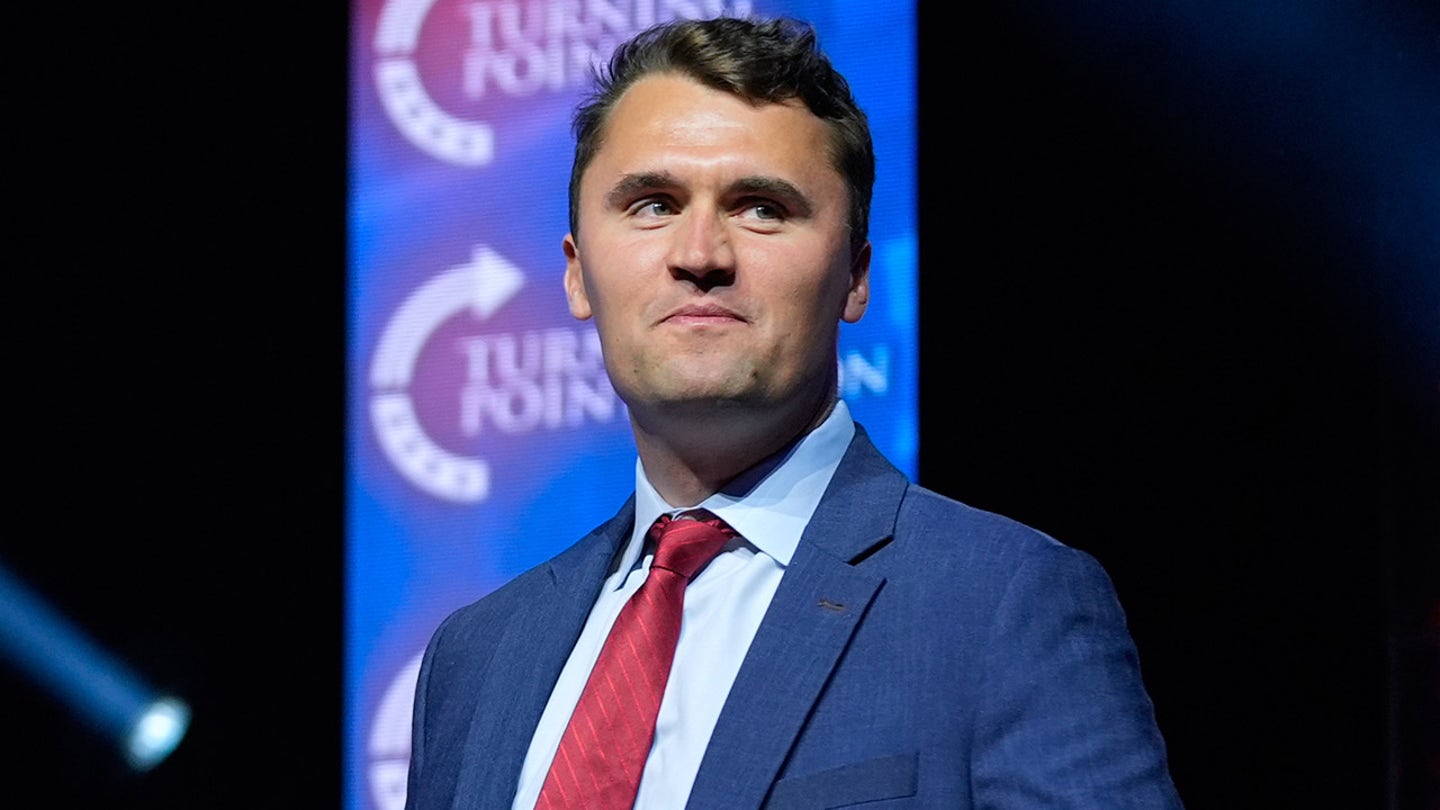
Caitlin Clark: CBA Negotiation Is 'Biggest Moment In The History of The WNBA'
Entities mentioned:
- Caitlin Clark: Ambition, Professional pride, Unity
- WNBA: Competitive spirit, Recognition, Professional pride
- WNBA Players: Justice, Self-respect, Unity
- WNBA Owners: Control, Self-preservation, Power
- Angel Reese: Unity, Recognition, Justice
- Kelsey Plum: Determination, Justice, Unity
Article Assessment:
Credibility Score: 75/100
Bias Rating: 45/100 (Center)
Sentiment Score: 55/100
Authoritarianism Risk: 20/100 (Strongly Democratic)
Bias Analysis:
The article presents both player and owner perspectives, quoting multiple sources. While slightly favoring player viewpoints, it maintains a relatively balanced approach to the negotiations.
Key metric: WNBA Player Compensation
Let me tell you something, folks - this CBA negotiation is the CHAMPIONSHIP GAME for the WNBA! We're talking fourth quarter, two-minute drill, do-or-die time! Caitlin Clark is stepping up to the plate like a true MVP, rallying her teammates for the biggest play in league history. The players are showing a championship mentality, folks, refusing to fumble this crucial opportunity. But make no mistake, the owners are playing tough defense, trying to protect their endzone. It's a high-stakes game of financial football, with million-dollar passes being thrown back and forth across the negotiating table. This is RIDICULOUS, people! The league's future hangs in the balance, and these athletes are fighting with the heart of champions for the recognition and compensation they deserve. It's crunch time, and the world is watching to see if the WNBA can score a game-changing victory for women's sports!

Turning Point USA partners with state of Tennessee to establish Club America Chapters
Entities mentioned:
- Turning Point USA: Influence, Legacy, Freedom
- Tennessee State Legislature: Competitive spirit, Influence, Control
- Riley Gaines: Determination, Loyalty, Righteousness
- Charlie Kirk: Legacy, Influence, Freedom
- Greg Abbott: Competitive spirit, Influence, Control
- Marsha Blackburn: Loyalty, Influence, Freedom
Article Assessment:
Credibility Score: 55/100
Bias Rating: 75/100 (Lean Right)
Sentiment Score: 70/100
Authoritarianism Risk: 55/100 (Mixed/Neutral)
Bias Analysis:
The article leans heavily right, presenting the conservative perspective without balancing views. It frames the establishment of Club America chapters as an unequivocal positive, using emotional language and conservative figures as primary sources.
Key metric: Political Engagement of Youth
Let me tell you something - this story is HUGE! We're seeing a major power play in the political arena, folks! Turning Point USA is stepping up to the plate and swinging for the fences with this partnership in Tennessee. It's like they're drafting young talent straight out of high school, building a farm system for conservative activism. Riley Gaines is acting as the team captain here, rallying the troops and honoring the legacy of the late Charlie Kirk. This is a fourth-quarter strategy to change the game in education, with states like Tennessee and Texas making aggressive moves to counter what they see as a left-leaning playbook in schools. It's a full-court press on free speech, with Club America chapters acting as the offensive line against perceived political censorship. The competition is heating up, and it's clear that both sides are playing to win in this high-stakes match for the hearts and minds of America's youth!

Karim Benzema: I'll Play For France at 2026 World Cup 'If They Call Me'
Entities mentioned:
- Karim Benzema: Ambition, Competitive spirit, Recognition
- French National Team: Pride, Ambition, Competitive spirit
- Didier Deschamps: Ambition, Control, Professional pride
- Al-Ittihad: Ambition, Recognition, Competitive spirit
Article Assessment:
Credibility Score: 75/100
Bias Rating: 50/100 (Center)
Sentiment Score: 65/100
Authoritarianism Risk: 20/100 (Strongly Democratic)
Bias Analysis:
The article presents multiple viewpoints and quotes directly from Benzema. It provides context for past events and current situations, maintaining a balanced approach to the subject matter.
Key metric: International Soccer Competitiveness
Let me tell you something - this story is a GAME-CHANGER! Karim Benzema, the star striker, is stepping up to the plate and showing he's got that championship mentality! He's not just warming the bench, folks - he's ready to suit up for France in the 2026 World Cup if they make the call. This is the kind of fourth quarter move that could turn the tide for Les Bleus! Benzema's got that fire in his belly, that hunger for glory that separates the champions from the also-rans. He's not just playing for the paycheck, he's playing for the love of the game and the thrill of victory! And let's not forget, this is a player who's been in the penalty box of public opinion, but he's fought his way back into contention. This is the kind of comeback story that makes sports so thrilling! Will France's coach Deschamps make the strategic play and bring this veteran goal-scorer back to the national squad? Or will he stick with his current lineup? The clock is ticking, the pressure is mounting, and the world is watching! This, my friends, is what high-stakes international soccer is all about!

Sherrone Moore faces stalking, home invasion charges as prosecutors detail disturbing allegations
Entities mentioned:
- Sherrone Moore: Power, Self-preservation, Fear
- Michigan Football Program: Competitive spirit, Professional pride, Loyalty
- Washtenaw County Prosecutor's Office: Justice, Duty, Righteousness
- University of Michigan: Reputation, Professional pride, Control
Article Assessment:
Credibility Score: 75/100
Bias Rating: 50/100 (Center)
Sentiment Score: 25/100
Authoritarianism Risk: 30/100 (Generally Democratic)
Bias Analysis:
The article presents facts from multiple sources, including prosecutors and university officials. It maintains a neutral tone, avoiding sensationalism while reporting serious allegations.
Key metric: NCAA Football Coaching Integrity Index
Let me tell you something - this story is a GAME-CHANGER for college football! Sherrone Moore, once a rising star coach, has fumbled BIG TIME and finds himself in a fourth-quarter legal battle that could end his career. The Michigan Football Program, a perennial powerhouse, is now playing defense against a scandal that threatens to bench their championship dreams. This is a classic case of personal fouls leading to ejection from the game, folks! The Washtenaw County Prosecutor's Office is blitzing hard, bringing the full defensive package against Moore with charges that could sack his future. Meanwhile, the University of Michigan is in full damage control mode, trying to recover this fumble and maintain their standing in the league of academic and athletic excellence. This is the kind of off-field drama that can derail a program's entire season, maybe even their dynasty! I'm telling you right now, this is a pivotal moment that could reshape the landscape of college football coaching and accountability!

What we know about fired Michigan head football coach Sherrone Moore’s dismissal and arrest
Entities mentioned:
- Sherrone Moore: Ambition, Power, Self-preservation
- University of Michigan: Righteousness, Reputation, Control
- Domenico Grasso: Duty, Moral outrage, Professional pride
- Warde Manuel: Self-preservation, Control, Professional pride
Article Assessment:
Credibility Score: 75/100
Bias Rating: 50/100 (Center)
Sentiment Score: 25/100
Authoritarianism Risk: 20/100 (Strongly Democratic)
Bias Analysis:
The article presents a balanced view of the situation, including multiple perspectives and official statements. It refrains from speculative accusations and sticks to reported facts and official communications.
Key metric: NCAA Football Program Integrity
Let me tell you something, folks - this is a HUGE FUMBLE for Michigan's football program! We're talking about a fourth-quarter meltdown that could set the team back years. Sherrone Moore, once the rising star quarterback of Michigan's coaching staff, has been sacked harder than a rookie behind a paper-thin offensive line. The University is playing full-court press defense, trying to protect its reputation with the ferocity of a championship boxer. Interim President Grasso is stepping up to the plate, swinging for the fences with his strong words, but can he hit a home run and restore faith in the program? Meanwhile, Athletic Director Manuel is on the hot seat, scrambling like a quarterback with no protection. This is a crucial moment, folks - the kind of play that can make or break a dynasty. Michigan needs to huddle up, regroup, and come out with a game-winning strategy if they want to keep their spot in the upper echelons of college football. I'm telling you right now, this is the kind of scandal that separates the contenders from the pretenders in the cutthroat world of NCAA athletics!

2026 College Football Transfer Portal Tracker: Who Are the Top Names Expected to Enter?
Entities mentioned:
- NCAA: Control, Regulation, Influence
- CJ Baxter: Ambition, Competitive spirit, Self-preservation
- Nick Marsh: Ambition, Recognition, Competitive spirit
- Kenny Minchey: Ambition, Competitive spirit, Recognition
- Dylan Edwards: Ambition, Competitive spirit, Self-preservation
- Dylan Lonergan: Ambition, Recognition, Competitive spirit
- Jaden Craig: Ambition, Recognition, Legacy
Article Assessment:
Credibility Score: 75/100
Bias Rating: 50/100 (Center)
Sentiment Score: 55/100
Authoritarianism Risk: 30/100 (Generally Democratic)
Bias Analysis:
The article presents a balanced view of the transfer portal situation, focusing on facts and player movements without favoring specific teams or conferences. It maintains a neutral tone in reporting the players' decisions and circumstances.
Key metric: College Football Competitive Balance
Let me tell you something - this transfer portal situation is RIDICULOUS! We're looking at a fourth-quarter shakeup that could completely change the game, folks! These players are like free agents stepping up to the plate, ready to swing for the fences with new teams. It's a high-stakes chess match where coaches are frantically trying to fill gaps in their roster while also scouting for that game-changing talent. The NCAA's new rules are like moving the goalposts mid-season, forcing teams to adapt their recruiting strategies on the fly. This is the kind of off-season drama that separates the championship contenders from the pretenders. I'm telling you right now, the teams that navigate this transfer portal chaos with a winning strategy are going to have a massive competitive edge come next season!

Michigan president calls Sherrone Moore's conduct a 'breach of trust' after shocking dismissal and arrest
Entities mentioned:
- Domenico Grasso: Righteousness, Moral outrage, Professional pride
- Sherrone Moore: Self-preservation, Fear, Anxiety
- University of Michigan: Reputation, Control, Justice
Article Assessment:
Credibility Score: 75/100
Bias Rating: 45/100 (Center)
Sentiment Score: 25/100
Authoritarianism Risk: 30/100 (Generally Democratic)
Bias Analysis:
The article presents a balanced view of the situation, quoting official statements and providing context. It refrains from speculative commentary and sticks to reporting known facts and official responses.
Key metric: NCAA Football Program Integrity
Let me tell you something, folks - this is a GAME-CHANGING play in the world of college football! The University of Michigan just threw a Hail Mary pass by sacking their own head coach mid-season. I'm telling you right now, this is the kind of fourth-quarter move that can make or break a program's reputation. Sherrone Moore fumbled the ball BIG TIME with this alleged inappropriate relationship, and Michigan's administration is showing championship-level defense by swiftly tackling this issue head-on. This is the ultimate test of team culture and institutional integrity. The Wolverines are in a high-stakes overtime situation, trying to recover from a major penalty and prove they've got what it takes to maintain a winning tradition both on and off the field. It's crunch time for Michigan's leadership - they need to step up to the plate and knock this crisis response out of the park if they want to stay in the game of elite college athletics!

OnlyFans model says fired Michigan coach Sherrone Moore 'slid into' her DMs: 'Wasn't surprised'
Entities mentioned:
- Sherrone Moore: Power, Recognition, Self-preservation
- Mia Sorety: Influence, Recognition, Self-preservation
- University of Michigan: Professional pride, Righteousness, Control
- Warde Manuel: Duty, Control, Professional pride
- Domenico Grasso: Duty, Righteousness, Control
Article Assessment:
Credibility Score: 65/100
Bias Rating: 55/100 (Center)
Sentiment Score: 25/100
Authoritarianism Risk: 20/100 (Strongly Democratic)
Bias Analysis:
The article presents multiple perspectives, including statements from various parties involved. It maintains a relatively neutral tone while reporting on a controversial topic, balancing official statements with social media reactions.
Key metric: College Football Coaching Integrity Index
Let me tell you something, folks - this is a GAME-CHANGING play in the world of college football! Sherrone Moore, once a rising star quarterback in the coaching ranks, has fumbled the ball in spectacular fashion. He's been caught way offsides, sliding into the DMs of OnlyFans models like he's trying to score in the red zone of social media. This isn't just a personal foul, it's a complete ejection from the game! The University of Michigan, acting like a tough-as-nails defensive coordinator, didn't hesitate to throw the challenge flag and boot Moore off the team. They're playing hardball, folks, showing zero tolerance for this kind of unsportsmanlike conduct. It's fourth and long for Moore's career, and I'm telling you right now, he's going to need a Hail Mary to get back in the game after this epic turnover!

Mohamed Salah to MLS?: 'Reach Out to Messi,' Says Commissioner Don Garber
Entities mentioned:
- Don Garber: Ambition, Competitive spirit, Influence
- Mohamed Salah: Professional pride, Recognition, Self-preservation
- Arne Slot: Control, Power, Professional pride
- Major League Soccer (MLS): Ambition, Competitive spirit, Recognition
- Liverpool FC: Competitive spirit, Pride, Self-preservation
Article Assessment:
Credibility Score: 75/100
Bias Rating: 45/100 (Center)
Sentiment Score: 60/100
Authoritarianism Risk: 20/100 (Strongly Democratic)
Bias Analysis:
The article presents multiple perspectives, including MLS, Liverpool, and potential Saudi interest. It balances enthusiasm for MLS with realistic obstacles, maintaining a relatively neutral stance.
Key metric: US Professional Soccer League Competitiveness
Let me tell you something - this story is HUGE! We're talking about a potential GAME-CHANGING transfer that could shift the entire landscape of soccer in the United States! Don Garber is making a bold fourth-quarter move, stepping up to the plate and swinging for the fences by publicly courting Mohamed Salah. This is a championship mentality, folks! MLS is showing they're not content warming up on the sidelines - they want to compete in the big leagues! Salah's situation at Liverpool is like a star quarterback clashing with his head coach. The playbook's not working, and now he's warming the bench. But here comes MLS, ready to draft him into a new team where he could be the franchise player. This is the kind of clutch play that could turn MLS from a minor league to a world-class competitor. It's a Hail Mary pass, but if it connects, it could be the touchdown that puts MLS on the global map!

15 Famous Player-Manager Feuds In Soccer History: Salah vs. Slot Joins the List
Entities mentioned:
- Mohamed Salah: Ambition, Professional pride, Indignation
- Arne Slot: Control, Competitive spirit, Professional pride
- Liverpool FC: Competitive spirit, Legacy, Unity
Article Assessment:
Credibility Score: 75/100
Bias Rating: 50/100 (Center)
Sentiment Score: 30/100
Authoritarianism Risk: 35/100 (Generally Democratic)
Bias Analysis:
The article presents both sides of the Salah-Slot conflict without overtly favoring either party. It provides context from multiple perspectives, maintaining a relatively balanced approach.
Key metric: Premier League Title Odds
Let me tell you something - this story is a GAME-CHANGER for Liverpool's title hopes! The Salah-Slot feud is like a star quarterback clashing with his head coach right before the playoffs. Salah, the Egyptian King, has been Liverpool's offensive MVP for years, but now he's riding the bench like a backup punter. This locker room drama could be the fumble that costs Liverpool their shot at the championship. Slot needs to call an audible fast or risk losing control of the team. The transfer window is like Liverpool's two-minute drill - will they keep their star player or trade him away? This is the kind of internal struggle that can make or break a season, folks. The Reds are in crisis mode and need to get back on the same playbook ASAP if they want any chance at salvaging their title defense!